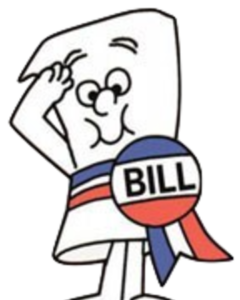This week, there is a lot of movement at the federal level to approve more funding for small business recovery. Senate Republicans unveiled a package of bills that would provide $1 trillion for coronavirus relief. This draft plan will have to be squared out with the $3.5 trillion stimulus bill (the HEROES Act) that House Democrats passed earlier this year.

The Senate’s package includes the following provisions for small business:
- Existing PPP changes
- Expands PPP allowable expenses for forgiveness (group insurance, etc.)
- For loans under $150,000, borrowers are not required to submit lender documentation, but instead attest to good faith effort and retain records for 3 years.
- Creates the Continuing Small Business Recovery and Paycheck Protection Program Act, introduced by Senators Rubio and Collins
- Small businesses with fewer than 300 employees that can show revenue losses of 50% or more since the pandemic began would be able to apply for a second PPP loan.
- Businesses would receive a loan up to 2.5 times the monthly payroll costs (up to $2 million).
- Borrowers applying for loans between $150,000-$2,000,000 will not have to submit the previously required lender documentation.
- Borrowers can customize the amount of time needed to use the money up until December of 2020.
- Includes forgiveness component, and keeps 60/40 allocation between payroll and non-payroll costs.
- $25 billion in funds are set aside for entities employing 10 or fewer employees
- $10 billion set aside for community lenders.
- Improves the terms of 7(a) loans for seasonal businesses and businesses located in low-income census tracts.
- Creates liability protections for employers
- Shields businesses from COVID-19-related lawsuits through Oct. 1, 2024, as long as they make “reasonable” efforts to follow public health guidelines and don’t commit acts of “gross negligence” or “intentional misconduct.”
Over at the House of Representatives, Congressman Steve Chabot introduced the MICRO Business Success Act of 2020. Among other provisions, the bill:
- Allots $20 billion of remaining PPP funds for businesses with 10 employees or fewer.
- Eliminates the 50/50 TA rule (which CAMEO has argued against).
- Increases the aggregate loan limit from $6 million to $10 million.
- Creates focus for SBDCs to increase reaching and serving businesses with 10 employees or fewer.
- Allows a business to qualify for the 504/CDC Loan Program if a loan expands a business with 10 employees or fewer.
Negotiations in Congress are ongoing and there are surely more changes to be made before the final bill is passed. We are working to make sure that all future recovery legislation helps underserved communities and not the big corporations. Some of our recommendations include:
- Set-aside appropriations forCDFIs, SBA Microlenders and Certified Development Companies, and other Community Financial Institutions (CFIs) within the PPP lender system.
- Federal loan guarantees for all mission-based and community-lenders.
- Additional appropriations for the Economic Injury Disaster Loan (EIDL) Advance Grant and the EIDL program.
- Resource partner grants for non-profit organizations to provide technical assistance and resources to businesses during the recovery.
